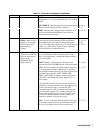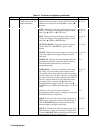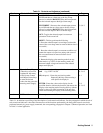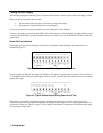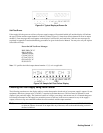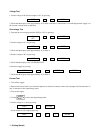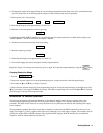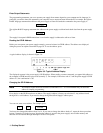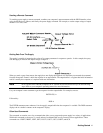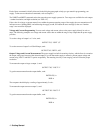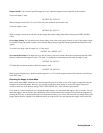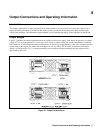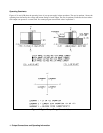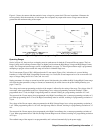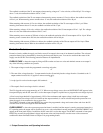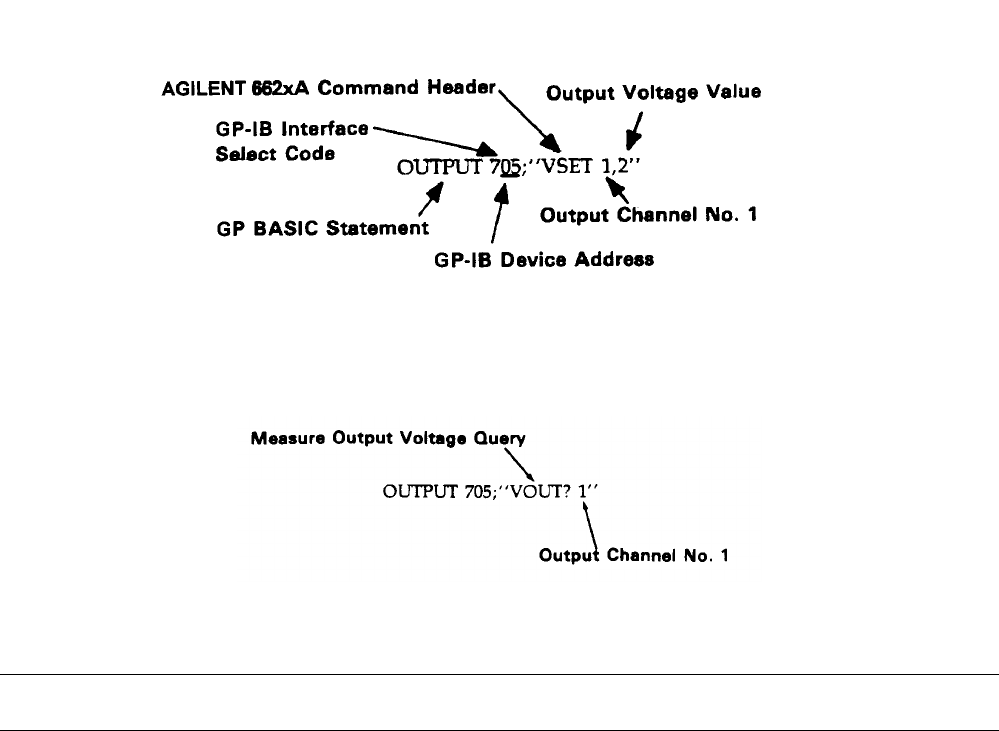
Getting Started
41
Sending a Remote Command
To send the power supply a remote command, combine your computer’s output statement with the GP-IB interface select
code, the GP-IB device address, and finally, the power supply command. For example, to set the output voltage of output
channel 1 to 2 volts, send:
Getting Data From The Supply
The supply is capable of measuring the values of its output parameters in response to queries. In this example, the query
asks the supply to measure the output voltage at output 1.
When you send a query from remote, the supply does not display the response as it did when you executed the command
from the front panel. Instead, it holds the response in an output buffer. The output buffer is a register that holds information
until it is read by the computer or is replaced with new information.
Note On an Agilent Series 200/300 Computer, the A variable must be declared before you do the following
steps. Refer to your computer’s operating manual for more information.
Use your computer’s enter statement to get the response from the output buffer. For example, execute:
ENTER 705; A
Followed by:
DISP A
The ENTER statement enters whatever is in the supply’s output buffer into the computer’s A variable. The DISP statement
displays the A variable’s contents on the computer’s display.
Often Used Commands
The command set contains over sixty commands that allow you to program the power supply in a variety of applications.
Within this command set, however, is a small subset of commands that are all you need for most applications. These
commands are: VRSET, IRSET, VSET, ISET, VOUT?, IOUT?, OUT, OVSET, and OCP.



